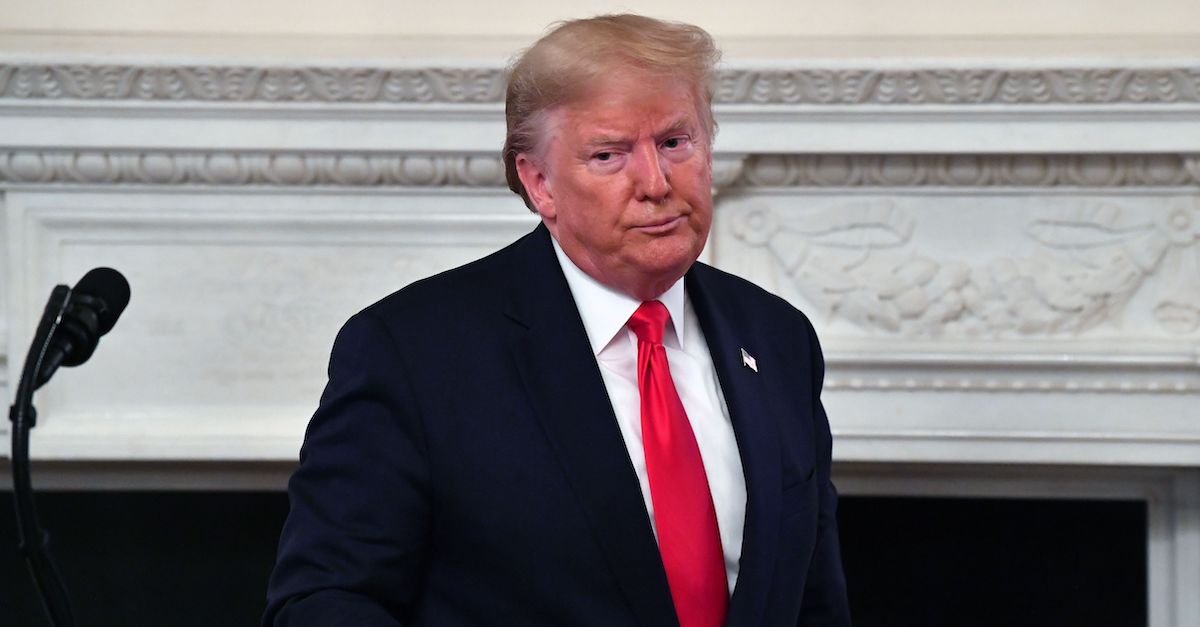
The legal battle between the president’s niece and members of the Trump family heated up yet again late Thursday night, with Mary L. Trump claiming that the confidentiality agreement she signed with much of the rest of her family – and which formed the basis of an injunction against the publication of her tell-all book – was procured via fraud.
In a 70-page memo filed by her attorney, Ted Boutrous, Mary L. Trump alleged that the president and his siblings of engaging in systematic fraud by devaluing assets. The alleged fraud thereby voided the contract, the attorneys argued.
“Plaintiff also cannot succeed on the merits of his contractual claims because the confidentiality provision in the decades-old Settlement Agreement of financial disputes that Plaintiff invokes is unenforceable and inapplicable. Indeed, the Settlement Agreement is unenforceable and void because Plaintiff and his siblings (including Donald Trump, the president of the United States) fraudulently induced Ms. Trump to enter into it based on false valuations that were revealed by the New York Times in its exposé of the Trump family finances in October of 2018,” the memo stated.
In asserting her claim of fraudulent inducement, Mary L. Trump relies heavily on the New York Times‘ 2018 Pulitzer-prize winning article “Trump Engaged in Suspect Tax Schemes as He Reaped Riches From His Father” by Davis Barstow, Susanne Craig, and Russ Buettner.
“The Times found that the Trump family had engineered ‘friendly’ appraisals for Beach Haven and Shore Haven Apartments—two of the largest ‘crown jewels’ of Fred Trump’s empire—that were significantly and deliberately undervalued to avoid a variety of tax payments,” the memo stated. “Those undervalued appraisals, part of the Trump tax avoidance scheme, were relied upon in the Settlement Agreement—which Ms. Trump has testified she would not have signed if she had known about the fraudulent appraisals.”
In addition to being void due to fraud, the memorandum argues that the terms of the confidentiality agreement are both “unenforceable and inapplicable” to the dispute over Mary L. Trump’s upcoming book.
She further contends that the plaintiffs only provided the court with a selectively redacted copy of the contract “in an attempt to isolate the confidentiality provision from its context and make the agreement seem like a simple exchange of confidentiality for consideration,” adding, “It is not.”
To illustrate the narrow scope of the agreement, the memo points to the plaintiffs’ own conduct as evidence that the parties did not intend the agreement to impose a “broad, sweeping, lifetime gag-order.”
“Plaintiff and his siblings have made multiple public comments over the years regarding their family relationships. Having done so, they cannot now advance an interpretation of the agreement that prohibits Ms. Trump also from commenting on her family relationships,” Boutrous wrote.
And of course, Mary Trump makes the argument that not only can the Trump family not show her book will result in “imminent and irreversible injury,” its publication is actually “manifestly in the public interest”:
Indeed, enjoining Ms. Trump’s book would produce exactly the type of private and public harms that prior-restraint doctrine exists to prevent. With respect to Ms. Trump’s own First Amendment rights, an injunction would completely deprive her of the ability to speak.
Read the full filing and Mary L. Trump’s affidavit below:
Robert S Trump v Mary L Trump Memorandum of Law by Law&Crime on Scribd
Mary L. Trump Affidavit by Law&Crime on Scribd
[image via NICHOLAS KAMM/AFP via Getty Images]
Have a tip we should know? [email protected]